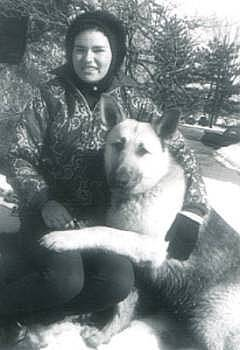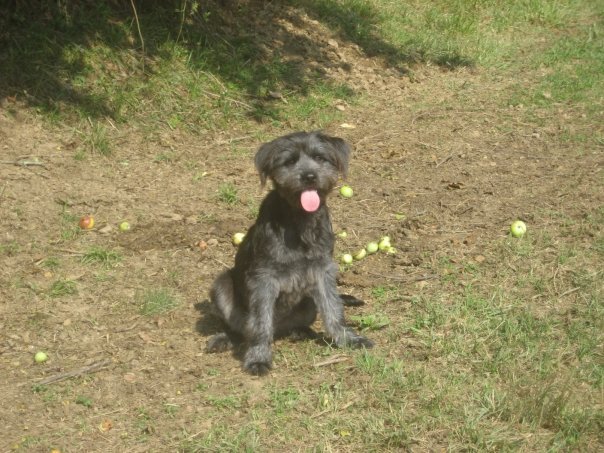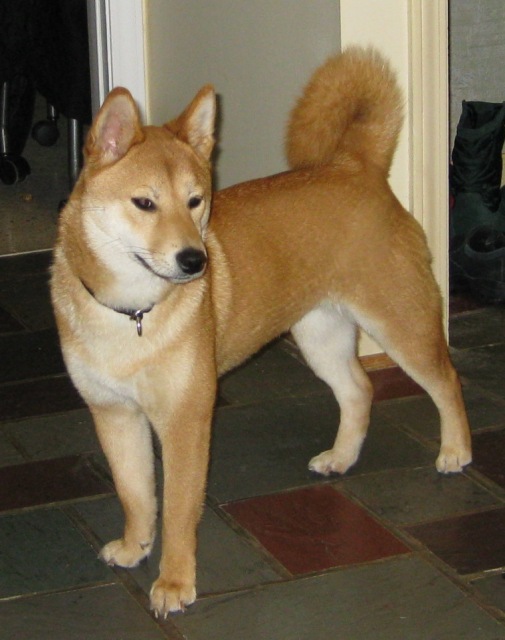QuestionWe have just switched our 10 week old puppy to a higher quality food but did it over 3 days, as this was the amount of old food we had. Our puppy now has very loose stools and has a little trouble going. We also have been adding water to the kibble. Should we purchase more of the old food and continue to add it in a higher ratio, and should we continue to add water to the kibble?
Answer
Hi Carol,
Even though you switched your puppy's food over a three day period, that still may have been too fast of a change over. Usually, it's suggested that you change a dog or puppy's food gradually, over 5-7 days, however it can be necessary to extend that to 7-10 days, it all depends on how sensitive your puppy is to change.
Changing a puppy's food will absolutely cause a soft stool as their digestive system is still developing. If you happen to be on a different water system from where you got your puppy from (or get your water from a well), that could also cause problems for a dog or puppy. Unfamiliar water can cause puppy diarrhea. It's a good tip, when traveling with your puppy, carry a bottle of drinking water from home.
By " very loose stools", I am assuming you're saying your puppy has diarrhea. If your puppy has diarrhea, give his system a rest for 12 hours, to allow his irritated digestive system to heal. However, encourage your puppy to drink lots of water to reduce the risk of dehydration. When you reintroduce food, start with small amounts of bland, easily digestible food. Cooked white rice, boiled chicken breasts (no skin) or boiled hamburger, or jarred chicken, beef or turkey baby food will soothe your puppy's stomach. You can substitute cooked pasta or mashed baked potatoes (no skin) for the cooked rice. Make sure all food items are free from salt, sugar and other seasonings. After a day of this bland diet, slowly transition your puppy back to his old food, by mixing in small amounts, until in about 2 days he's back to a diet of his old food. When his stools are normal, then try to switch diets again, only take longer to do so. You don't need to add water to your puppy's kibble. Crunchy food is good for his teeth.
A puppy with prolonged diarrhea or the presence of additional symptoms, such as a fever, pain or lethargy should be examined by a veterinarian.
You can tighten up your puppy's stools by adding a little fiber to his diet. You can use high fiber cereals, canned pumpkin (not the pie filling but the 100% natural canned pumpkin) or psyllium (Metamucil). Suprisingly, these can work wonders for both the occasional bout of diarrhea or for the opposite, constipation in dogs. How much pumpkin should you give? It depends on the size of the puppy but as a rule of thumb a 1 teaspoon twice a day for a small puppy. For a medium-size puppy, choose unflavored and unsweetened Metamucil (or a similar psyllium product) and add 1 tsp to a small amount of water before pouring it over bland food. For a toy breed, use slightly less, and double the amount for a large- or a giant-breed puppy. Contact your vet's office for confirmation of both the psyllium and the pumpkin doses.
If even changing back to the old food, and adding pumpkin or fiber to your puppy's diet doesn't set things right, don't delay in having your puppy examined by your vet.
Have you had your puppy examined by a vet for worms? That could be another explanation for the loose stools. If your puppy was treated for worms, did you have a stool test run after the course of treatment? It's possible new worms have hatched, and your puppy is still having a worm problem.
You didn't say what the new food is that you've been switching to. A very high protein percentage isn't tolerated well by some dogs and puppies.
I hope that helps!
Best of luck,
Patti

 new puppy
Question
bella
I adopted a puppy from the humane
new puppy
Question
bella
I adopted a puppy from the humane
 What dog is right for me?
QuestionHi,
my name is Miriam and I am 12 years old.
What dog is right for me?
QuestionHi,
my name is Miriam and I am 12 years old.
 Help with my best friend :)
Question
cash
Hello!
&
Help with my best friend :)
Question
cash
Hello!
&
 Rescued Shiba with ISSUES
Question
Shredder
Kristin,
I consider myself an experie
Rescued Shiba with ISSUES
Question
Shredder
Kristin,
I consider myself an experie
 Puppy wont come!
QuestionCapone & Rascal
QUESTION: Help! &nbs
Puppy wont come!
QuestionCapone & Rascal
QUESTION: Help! &nbs